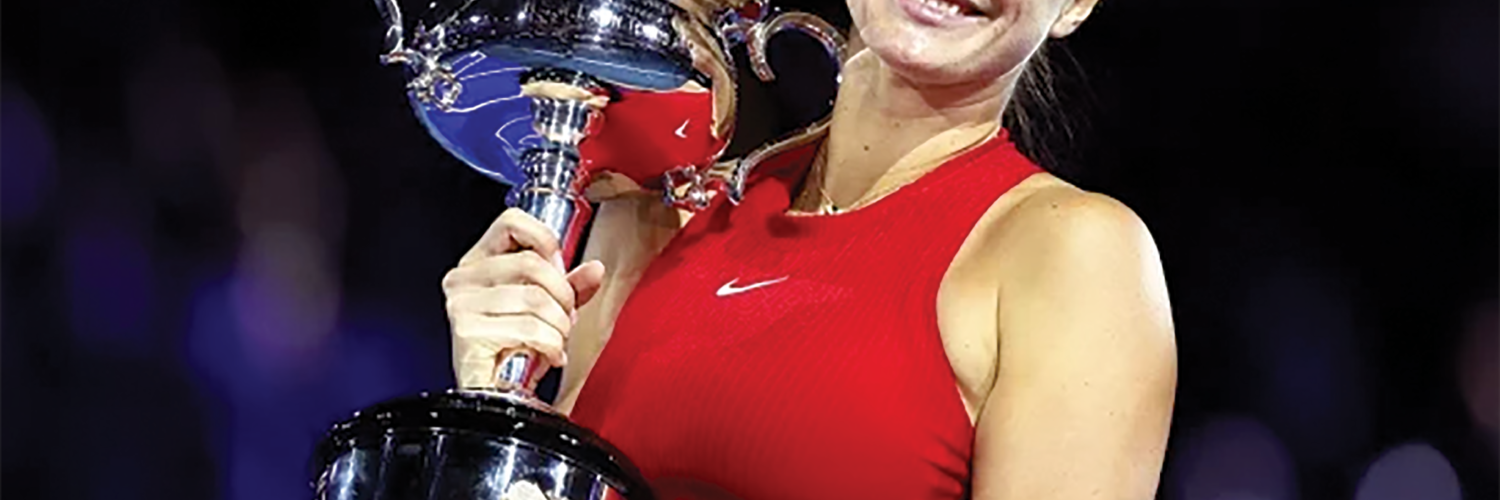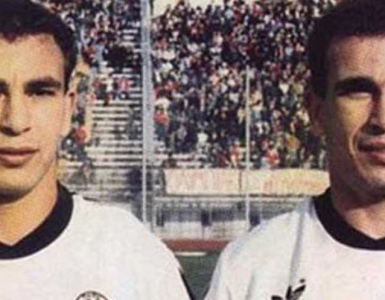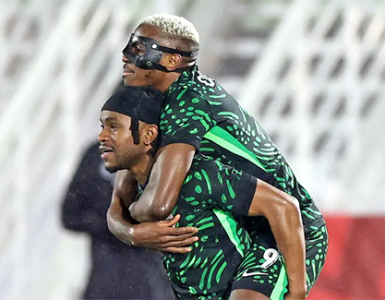ELITE: The Australian Open winner became only the second player in the past 20 years to win the women’s singles final without dropping serve
By Sports Reporter
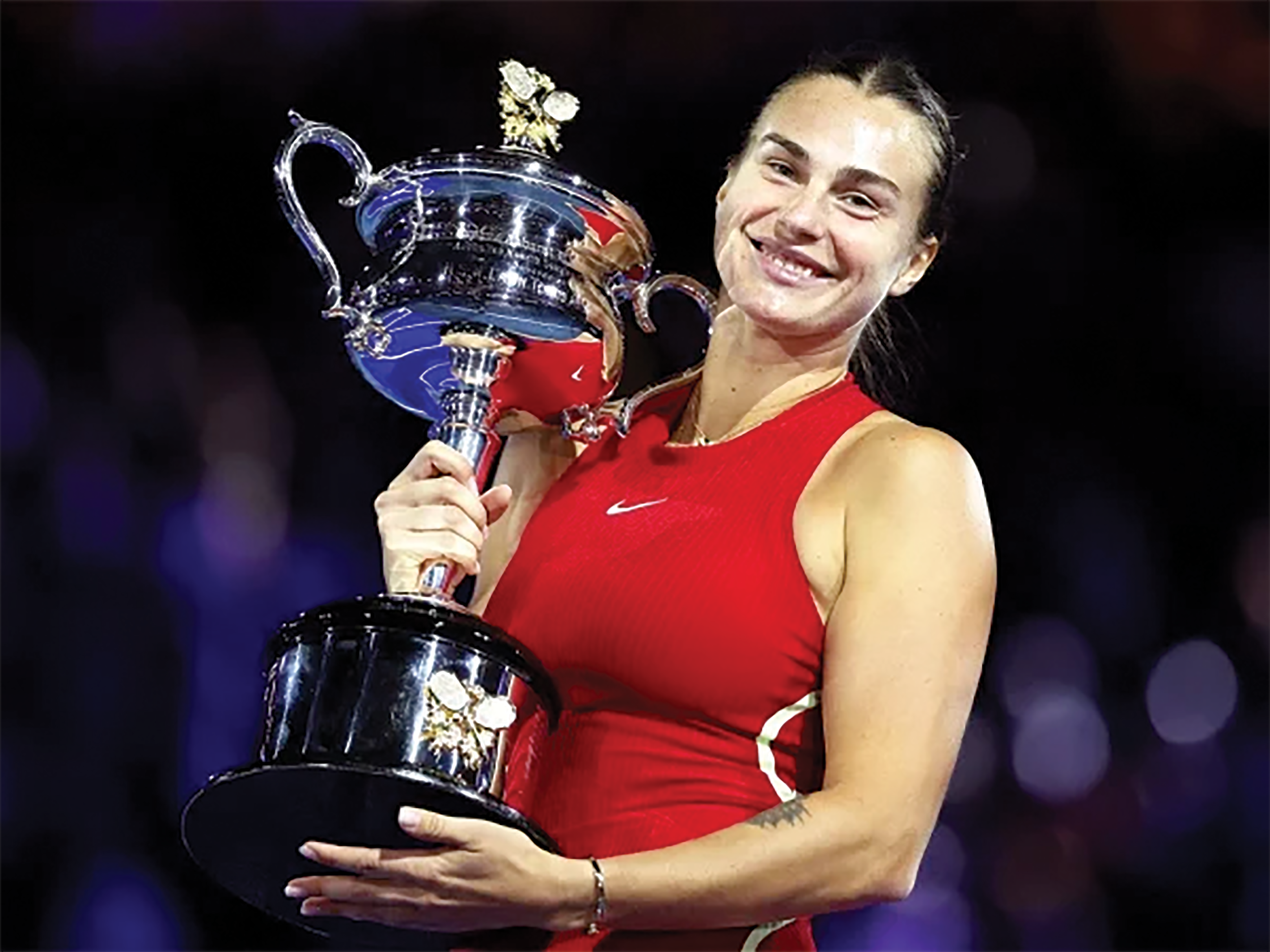
GOLDEN SMILE: Aryna Sabalenka savouring her moment of joy by lifting the Australian Open trophy she succesfully defended for a second time running on Saturday
Sabalenka is just the second woman to win her first two Grand Slam titles at the AO But it was not only in Saturday’s showpiece where Sabalenka produced statistical dominance.
Sabalenka’s exploits throughout the past two weeks have taken her game to fresh heights.
The records she is now breaking are reaching an elite level, and the data from AO 2024 suggests it is a huge ask for any female player to stop her if she is playing at the peak of her powers on a hard court.
The first player since compatriot Victoria Azarenka 11 years ago to win back-to-back titles, Sabalenka has also become just the second woman to win her first two Grand Slam titles at AO.
This event has proven so hard to defend in recent years, highlighting how impressive Sabalenka’s feat is. Her victory ended a four-year run with different champions.
Had Zheng won, it would have been the first time since 1981 that five straight tournaments had different winners, but instead Sabalenka has firmly established herself as the player to beat at the AO for many years to come.
A victorious campaign for Sabalenka saw her win every match in straight sets. She only had to play one tiebreak, and in six of her seven matches she did not drop more than three games in a single set.
Sabalenka has therefore matched some of the great AO campaigns this century. Lindasy Davenport in 2000, Sharapova’s stunning success in 2008 after her heavy loss to Serena a year earlier, Serena herself triumphing in 2017 and Ashleigh Barty’s championship in 2022 are the other occasions when AO winners did not drop a set.
It took Sabalenka an average of just 70 minutes per match to reach glory. How does that rank against previous AO champions? Since 2016, only Barty’s powerful triumph on home soil (65 minutes per match) has been recorded in quicker fashion.
Sabalenka’s run compares favourably to elite tournaments from Serena in 2017 and Naomi Osaka in 2021 (both 77 minutes), as well as being a vast improvement on her own triumph in 2023 (95 minutes).
Most staggeringly, Sabalenka achieved her dominant wins despite having an incredibly difficult path to victory.
She had to beat three top-15 opponents in a major for the first time in her career and, even though the fourth-round win came against an unseeded rival, comeback queen Amanda Anisimova had lit up the first week in Melbourne and entered the contest in fine form.
“Play to win, not to not lose”: Inside Team Sabalenka’s mindset
It took a stunning serving performance for Sabalenka to see off the American – she racked up six aces to just one double fault, won 87 per cent of her first-serve points (her tournament high) and afforded just one break-point opportunity to Anisimova, which she duly saved.
Meanwhile, the battling win Sabalenka earned over US Open winner Coco Gauff in the semifinals, a performance that included 33 winners, represented the highest-ranked opponent she has ever beaten at a Grand Slam.
Already consistent at the majors – Sabalenka is the first player to reach six consecutive semis before turning 26 since Serena in 2003 – she is now also becoming a prolific winner.
With 12 hard-court tournament wins since 2018, Sabalenka is unrivalled on the WTA Tour, while Serena at Wimbledon (2015-16) and Iga Swiatek at the French Open (2022-23) are the only others to win the same major in consecutive seasons during the past decade.
Zheng had delighted fans at Melbourne Park with her run to the final, but facing Sabalenka was a clear step up. The champion has now appeared in 26 career finals and, since 2017 when Sabalenka reached her first, has played in more showpiece matches than anyone else.
This is clearly her favourite surface – Sabalenka has now played in 18 Tour-level finals on hard court, putting her four clear of any other player in that statistical category since 2017.
While Zheng will be devastated to fall short, she has enjoyed a fortnight that has propelled her to stardom. As for Sabalenka, already a two-time champion at the age of 25, few would bet against her breaking many more AO records in the years ahead.
Indeed, she may already be daring to dream about the prospect of a famous three-peat in 2025, an accomplishment which has not been achieved in the women’s singles this century.
THE RETURN OF VENUS WILLIAMS
INSPIRED: The former World No.1 and seven time Grand Slam singles champion is targeting a return for Indian Wells and Miami
By Sports Reporter
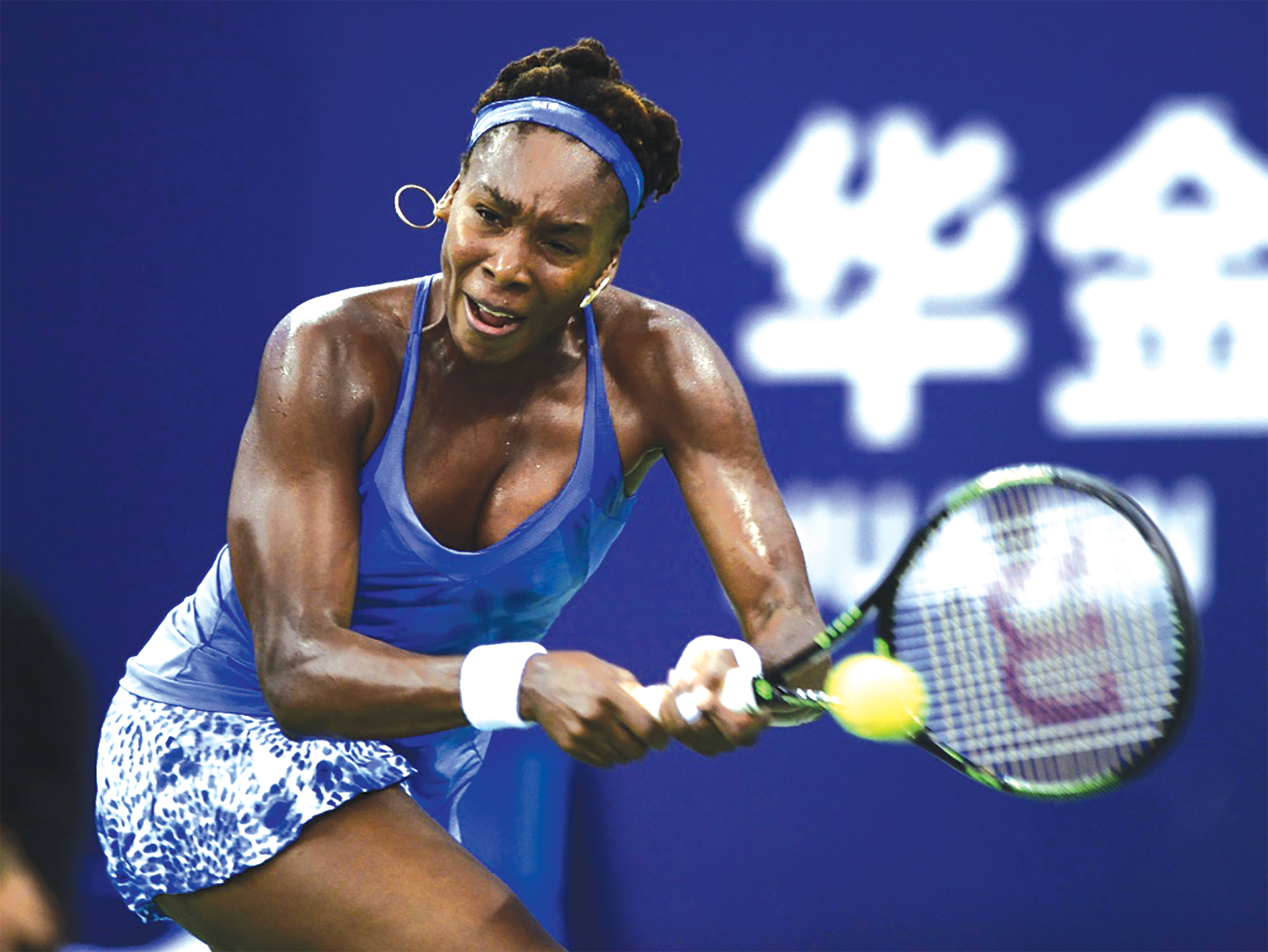
Venus Williams is gearing up for a return to tennis in the North American hard-court season — and is taking inspiration from her sister, Serena Williams, to get her there.
Venus, the former World No.1 and seven-time Grand Slam singles champion, opened up on the injury struggles she’s had over the past year in a recent video posted to her YouTube channel over the weekend, where she dubbed playing at the WTA 1000 events in Indian Wells and Miami a “big goal.”
In the video, Williams, 43, discussed the knee injury that left her hobbling off Centre Court at Wimbledon last summer (she took a fall in the second game of her first-round match against Elina Svitolina) at length for the first time.
“I don’t talk a lot about my injuries because I hate complaining,” she began, but called the cartilage damage she suffered as one of the “craziest” injuries she’s tried to play through in her long and storied career.
After the early exit at Wimbledon, Williams said the lingering swelling and pain impacted her ability to train — and even, sometimes, walk — in advance of events in Montreal and Cincinnati, as well as the US Open. Despite that, she scored what was then a Top 10 victory over Veronika Kudermetova in Cincinnati — her first Top 10 win in four years. But after that tournament, the swelling in her knee “blew up” and she was forced to withdraw from the WTA 250 event in Cleveland — where she had intended to play as a wild-card entry.
“I felt terrible about that, because when I give my word, I keep it,” she said. “When I said I was going to Cleveland, I meant it, and the fact I had to withdraw, I felt miserable because that’s not me. I do what I say I’m going to do.”
In an effort to play the US Open, Williams revealed she had a cortisone injection for the first time in her three-decade career, but it did little to help. Her season eventually ended with a 6-1, 6-1 loss to Belgian qualifier Greet Minnen in the first round — the heaviest defeat she ever suffered at her home Grand Slam event.
The loss sparked an “honest conversation” with herself, Williams said, and helped her realize that coming back to tennis ready to compete would be a marathon, not a sprint. But some strong words from Serena helped, too — and ensured that fans should get a chance to see her in action again later this year.
“One of my big goals is to play United States, to play in the Miami Open and at Indian Wells,” Williams said. “I have not played there since 2019 due to injuries.
It’s a long time. … It’s a lot of years not to play at home. So that’s of course one of my big goals on the horizon, is to be there, prepare to do that. Amongst many goals on the court, too.”
“My little sister, Serena, told me I’m not allowed to quit, and of course, I would never quit,” Venus Williams said. “But it’s the mandate. She said no, so I will be back on the court.”
Meanwhile, tennis greats Martina Navratilova and Chris Evert have “turned their backs on women” by opposing plans to stage women’s events in Saudi Arabia, the kingdom’s ambassador to the United States has claimed.
Last week, the pair wrote an opinion piece outlining their opposition to hosting the WTA Finals in Saudi Arabia. The WTA is considering moving the season-ending tournament to Riyadh.
Princess Reema bint Bandar al-Saud said their view was “beyond disappointing”.

